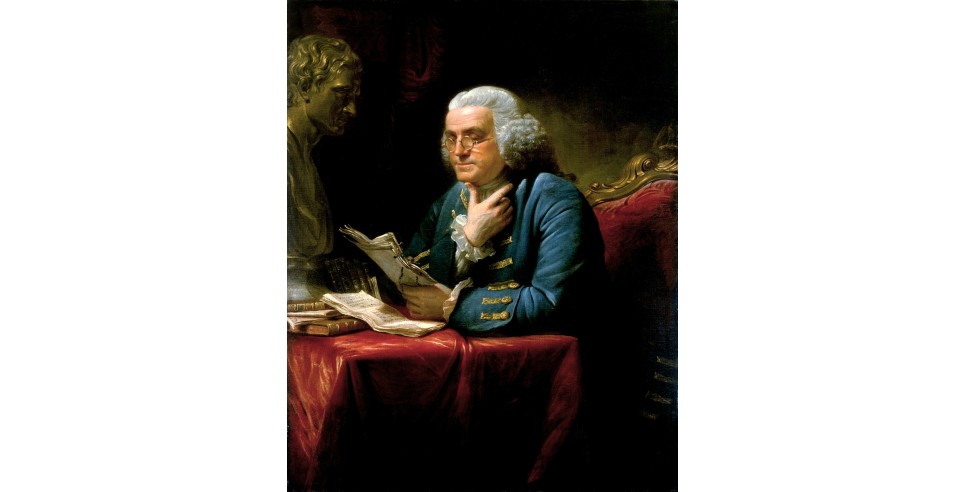
If Benjamin Franklin, Scientist, Inventor, Historian, Politician, Publisher, Printer and Author, came back to live in the 21st century, one could hardly imagine his maxing out his Visa card at a Prada store. He just didn’t stand for lavish spending and living beyond one’s means. Even though he could have easily afforded Prada (Franklin was a wealthy man), he wouldn’t have worn a brand that countered who he was. Franklin was a champion of practical intelligence and he stood for frugality, discipline and resourcefulness.
If he had lived in the 21st century, Ben Franklin could have easily invented a device like the iPad and instead of giving content away for free, he would use it as a tool to make money for his publishers and authors. Franklin wasn’t a proponent of giving away content for free. He made a small fortune from the sales of Poor Richard’s Almanac.
Franklin became the first to publish a novel in America in 1744 when he reprinted Pamela, by Samuel Richardson. And by the time he was forty, he turned his work over to his foreman David Hall, who then became his partner. Franklin still owned half the printing business and netted a handsome annual income. Eventually, he retired from printing, publishing, and bookselling so that he could devote his time to scientific research and public service. And we all know that without his behind-the-scenes efforts with the French, we might not have won the war against the British.
The ease with which we can now publish is the same as it was in America in Ben Franklin’s 18th century. Franklin would write an article in the morning, send it off to the printer in the afternoon, and by nightfall his work would be distributed to every coffee house and tavern in Philadelphia.
For entrepreneurs, the Internet is just like living in the 18th century because of the speed in which we can go to market. But with that speed to market, there is also a price to pay. Many truly talented entrepreneurs are getting lost in the clutter.
With the advent of AI, now more than ever, entrepreneurs need to build a strong brand so their wares can be found in the midst of all the clutter. Building brand equity makes entrepreneurs more valuable on all fronts. Even though the media has become highly fragmented, PR is still the most effective way to build an individual’s brand. There is no greater credibility than getting authentic news coverage.
Going back to that Renaissance man Benjamin Franklin. While much is made of his inventions, explorations and political influence, everyone fails to mention one of his finest talents of all—he was really good at PR. That is why he was able to get distributed so quickly in the coffee houses and the taverns. Ben Franklin knew all the right networks and he knew how to build a brand that would stand the test of time.
Ben Franklin was one of America’s most influential founding fathers. But think of how his brand has endured far beyond the coffee houses and taverns of Philadelphia. Ben Franklin’s colorful life, his legacy, his brand is on our money: the quarter and the hundred dollar bill. His name is on warships. He is the namesake for many towns, counties, educational institutions, and companies. All of these things were done in his name, not by him, but for him, because he stood for honor, integrity, loyalty, dignity, and fairness. More than two centuries after his death, his brand has endured and he has achieved the status of a cultural icon.
As an author, a business owner or a performing artist, as just about anyone who is in business today, you must not think of only “selling.” You must think first and foremost about building your brand. You must create a brand that is constantly expanding. Your mission is powerful and unstoppable—your mission is to grow new followers and fans. You must constantly enlarge your audience. And most important of all, you must create value for the people whom you serve.








